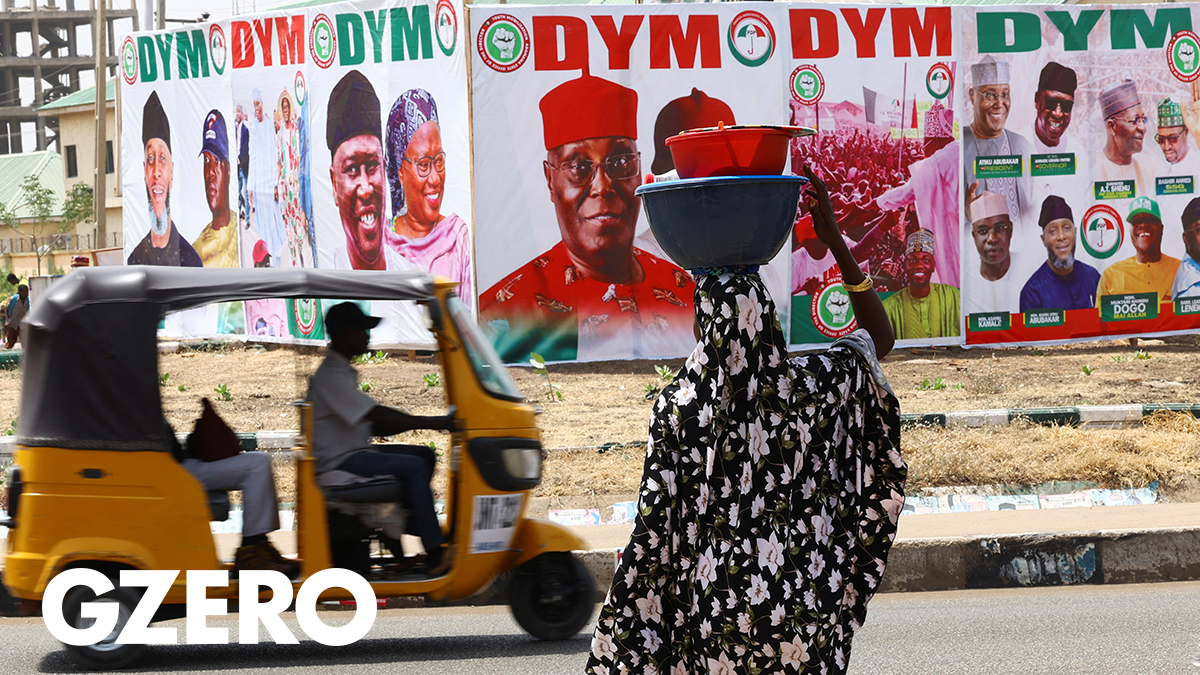Listen: On February 25, Africa’s most populous nation heads to the polls to vote for a new president in what is shaping up to be a hotly contested race. Nigeria has one of the fastest growing populations globally, one that could surpass the United States by 2050. And it’s a young country—75% of registered voters are under 50 years old. The candidates, Bola Ahmed Tinubu of the All Progressives Congress (APC), Atiku Abubakar of the People’s Democratic Party (PDP), and Peter Obi from the Labour Party are all vying to replace the outgoing President Muhammadu Buhari.
To help you better understand the Nigerian election and what’s at stake, GZERO is handing over this podcast feed today to Amaka Anku, Head of Eurasia Group’s Africa practice. She brings us a conversation from the The Center for Global Development podcast moderated by CGD’s Senior Policy Fellow Gyude Moore.
GZERO Media will also bring you updates on the election results and what they mean for Nigeria’s future
Subscribe to the GZERO World Podcast on Apple Podcasts, Spotify, Stitcher, or your preferred podcast platform, to receive new episodes as soon as they're published.
